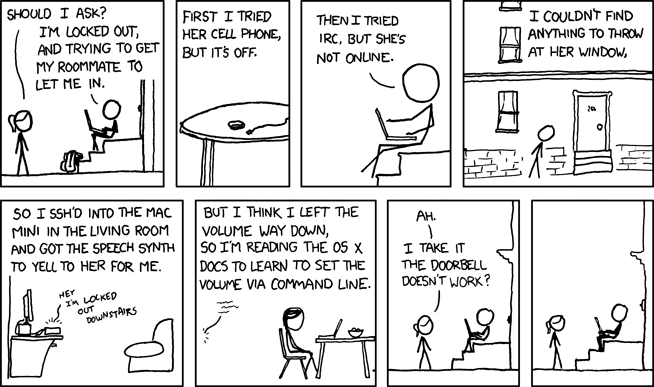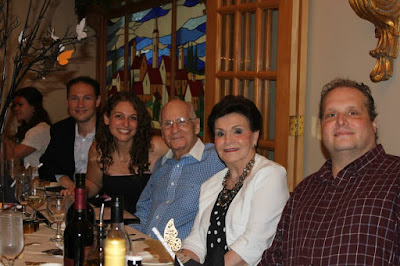There is a scene in the 1995 Ang Lee version of Sense and Sensibility, right after Willoughby announces that he's leaving Devonshire for London (instead of proposing to Marianne, as she and everyone else expected him to do that morning), in which Elinor quite uncharacteristically takes a seat on the staircase and has a cup of tea, whilst still wearing her pelisse, bonnet, and gloves.
She hasn't lost her senses (ha!), but is instead acting out the most practical and pragmatic thing to do under the circumstances. Having returned from church expecting to congratulate their sister, the Dashwood women are surprised and confused by the stormy scene they interrupt, and are left unable to seek answers to their many questions. Elinor tries to ask, and then tries to persuade their mother to ask, but she gets nowhere. Marianne has locked herself in their shared bedroom to weep. Their younger sister, Margaret, tries to deliver a comforting cup of tea to the heartbroken Marianne, and then runs tearfully into her own room in response to being brusquely rejected. Even Mrs Dashwood eventually storms off the landing into a third room with a tremor in her voice and a tremble in her lip, after Elinor suggests that Willoughby has taken his leave in rather a "guilty" manner. Left with a superfluous cup of tea and no room in which to retire, Elinor chooses to sit on a step and meditate, sipping as calmly as possible, whilst the rest of the house echoes with sobs.
That moment resonates with me.
Elinor has always seemed to me a kindred spirit, but it is the visual metaphor that Lee uses here that I find so relatable. Three closed doors, one stark, grey hallway/landing, two staircases whose termination points are offscreen. Elinor, looking drab in her burnt umber outdoor clothes, with her face mostly obscured by her bonnet as she glances at each door and then down at that bright blue cup, making an imperceptible yet entirely rational decision to sink wearily onto the stair and drink the tea, lest it go to waste. With nothing more to be done, she sighs to herself and waits for the tempest of emotions around her to subside.
I suppose "sense will always have attractions for me" (I'd have married the well-bred, well-read, well-traveled and sensible Colonel Brandon in a heartbeat!), but much of the life of a mother and wife entails dealing with nonsense. Oh, sometimes it is nonsense of the best kind, like when my son plays with language and creates his own words ("I want to go unbehind you down the stairs!") or when my daughter insists on doing everything herself, from brushing her teeth to putting on her shoes, so that it takes two or three times longer and usually has to be redone correctly, but gives her a sense of pride and independence in the process. But lots of other times, it is the irritating nonsense of the two of them fighting over absolutely nothing; just shouting yes and no at each other in the back seat of the car. Or the mundane nonsense of having to pay extra on the water bill because we let them play outside in the garden and didn't realise for about half an hour that they had discovered and turned on the spigot. Or the unending nonsense of the laundry, which is always in progress and never completed, ever.
Children are, of course, unable to regulate their emotions, so we have frequent tantrums and overtired rants and toy-hurlings and stampings and screamings. My husband is unable to deal with excessive noise (something called misophonia, with which he has self-diagnosed), so he tends to go into panic mode or rage mode quite quickly when the children do what children do. Which means that I am frequently the only person keeping her head in the midst of the chaos. I choose not to let the chaos in, and there are times when I calmly pick up a book or pour a cup of tea and just wait out the storm. Like many highly-emotional people, my husband finds this infuriating. (My mother and sister always did, too, and they still see me as cold, hard-hearted, and judgmental.) But I just see it as sensible.
At those moments, the world around me becomes monochrome, and the item in my hands becomes my entire focus--especially if it is a good book, into which I can literally escape and find respite. Like Elinor, I let my physical self melt into the mundane, detached from tedious clamour and insipid routine, whilst my cerulean soul flies freely about its harmonious inner space.
For a person of deep feeling and quick temper, this is the only reliable method for maintaining an even keel on the roughest waters, regardless of how shocking it may appear to the uninformed onlooker.





















































